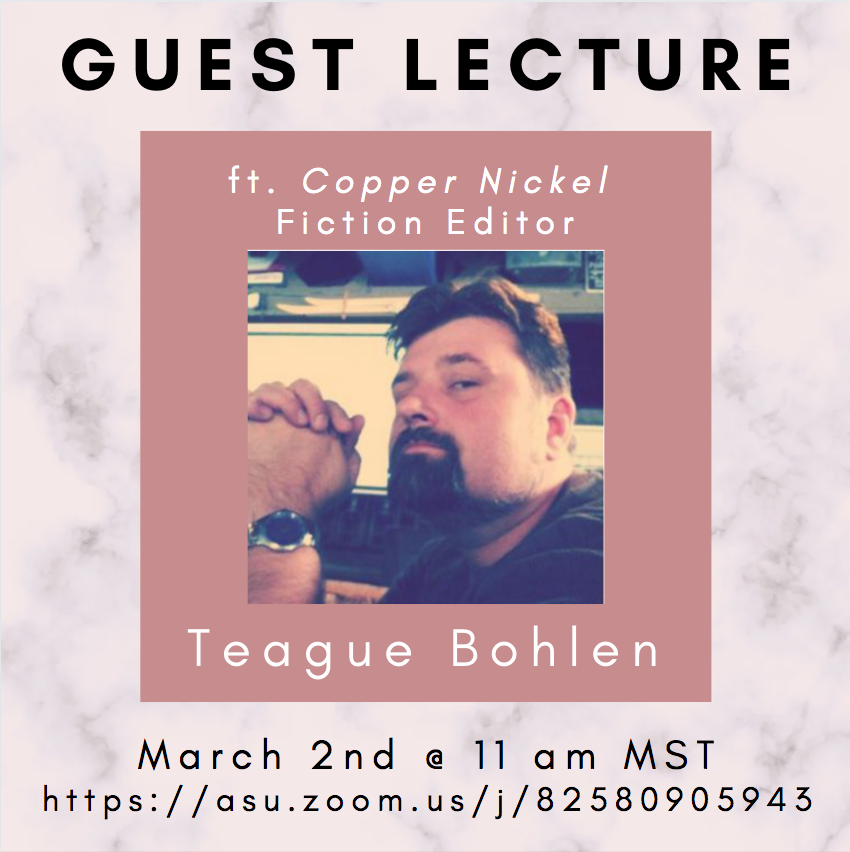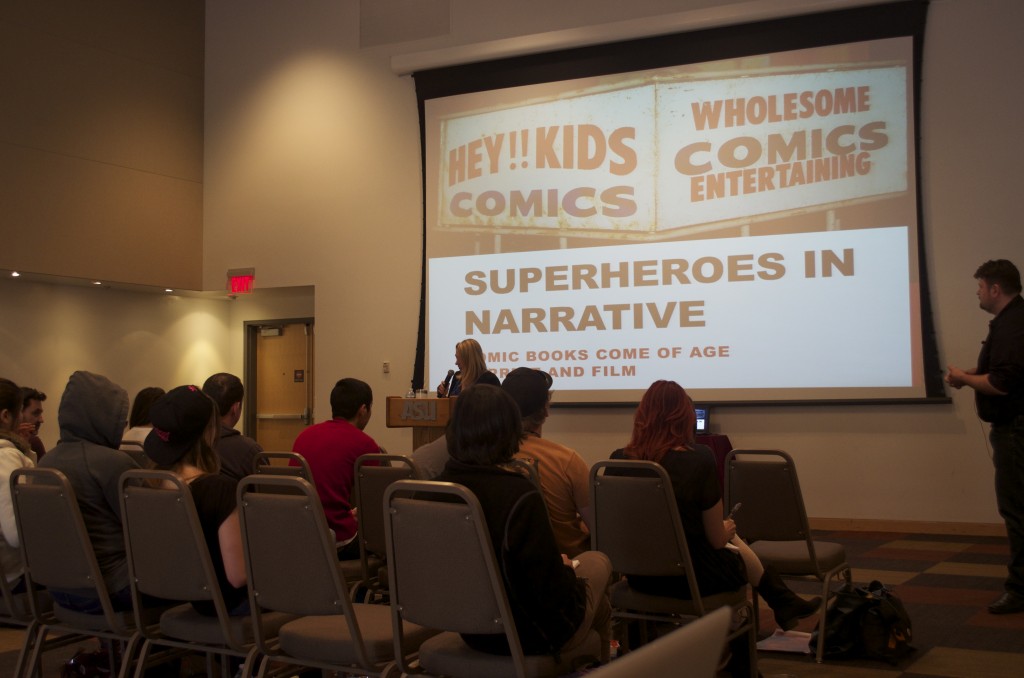Superstition Review invites all readers to attend a guest lecture featuring Teague von Bohlen, the Fiction Editor of Copper Nickel, to learn more about him and his work and ask questions.
This online lecture will be on March 2nd at 11:00 am MST. Here is the Zoom link to attend: https://asu.zoom.us/j/82580905943
We hope to see you there!
Teague von Bohlen is an Associate Professor of Fiction at the University of Colorado Denver, where he runs the student newspaper The Sentry and serves as Fiction Editor for the literary magazine Copper Nickel. He works the literary, pop-culture, and social/political commentary beats for the alt-weekly Westword, and his short fiction has been seen nationwide. His first novel, The Pull of the Earth, won the Colorado Book Award, and he’s the co-author of the student-strategy textbook The Snarktastic Guide to College Success. His first collection of stories, a flash fiction/photography mash-up called Flatland, was named a finalist for the Colorado Book Award in 2020. He’s currently shopping a completed ghost-story novel called The Normal Home, also set in the Midwest heartland, working on an ultra-nerdy LitRPG book with an old friend, and has started his next literary novel as well, this one set in both Tucson and Denver.
He makes a home in Colorado now and grew an abiding love for the desert in his time in Arizona. But his corn-fed heart never left Illinois.



